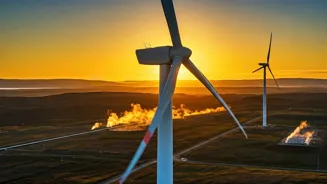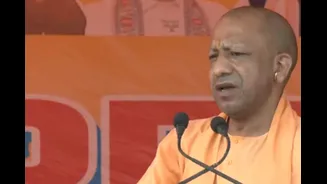Energy Trade Expansion
During an event in New York, Mr. Goyal highlighted the ambition to boost energy trade with the United States. He noted India's substantial role as an energy importer,
underlining the potential for increased trade in energy products between the two nations in the upcoming years. This commitment to increasing energy trade underscores the importance of a reliable energy supply for India's growth and also supports the strategic partnership between the two countries. The minister pointed out that energy security goals will have a “high element” of U.S. involvement, aiming for price stability and diversified energy sources for India. This expanded cooperation is envisioned to unlock numerous opportunities beyond just energy, reinforcing the broader economic relationship between India and the U.S. This push comes at a time when the U.S. has imposed a 25% additional tariff on Indian imports as a penalty for importing Russian oil, which the US seeks to be replaced by American oil.
Climate Change Concerns
Mr. Goyal also addressed the intersection of trade and climate change. He expressed concerns about conflating the two, emphasizing the need to be cautious about trade measures potentially influencing climate change efforts. The discussions acknowledged the critical need for measures to address the impact of climate change and the risks associated with using trade as a tool in this effort. He cautioned against policies that might discourage countries from participating in global climate initiatives, particularly in the context of the EU's Carbon Border Adjustment Mechanism (CBAM). Mr. Goyal's statements highlighted the complexities of balancing environmental objectives with trade dynamics and ensuring that climate actions do not inadvertently undermine international cooperation or economic stability.
CBAM Concerns Addressed
The Commerce Minister openly expressed reservations about the EU's CBAM, a mechanism designed to impose tariffs on imports based on their carbon footprint. He noted that this could isolate the EU and negatively impact its economy by making its products uncompetitive in global markets. He was vocal in his resistance to CBAM, even suggesting potential retaliatory measures from India if the EU proceeded with its plans. This move is seen as a form of “green protectionism” and could render the EU's infrastructure and cost of living unviable. India anticipates that the mechanism will cause a reduction in market share for European exports. Mr. Goyal added that the situation is like a trap where it is very difficult to come out of it.
Critical Minerals and Nuclear
In addition to energy and climate considerations, Mr. Goyal discussed the significance of critical minerals. He underscored the importance of resilient supplies and diversifying sources to prevent trade from being weaponized, indicating a focus on strategic partnerships. India and the U.S. plan to collaborate on nuclear power, according to Mr. Goyal. He stated that India is working on supporting private efforts in nuclear power. He also spoke about how the two countries would be working closely on nuclear power. Being friends and natural partners, their energy security goals will involve the U.S., which will ensure stable prices and diversified energy sources for India. This collaboration signifies a broader aim to enhance economic cooperation and address global challenges together.













